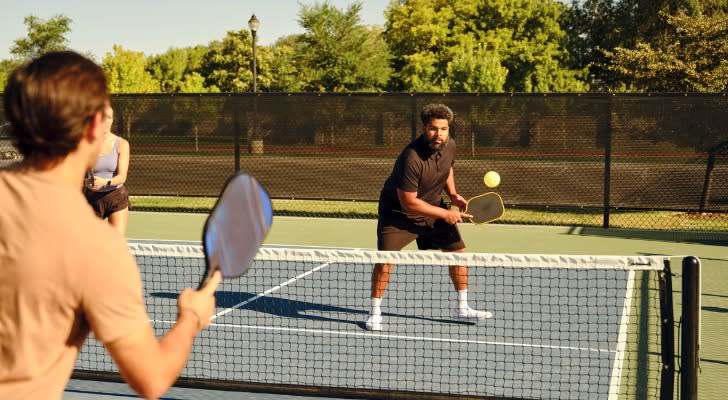
Retirement marks one of the big transitions in your life. For most people, until your late teens or early twenties, you define your time by going to school. After that, your schedule is built around the need to work and earn a living. Retirement is the third stage. No one assigned you a classroom, and no outside force (whether a boss, a client, or the growing season) booked you into a schedule. You have to decide what to do with your time.
You can do great things in your retirement, but first you need to figure out what you want to get out of this phase of your life. To help you figure it out, here are some places to start. For help in retirement or managing your money as you get older, consider working with a financial advisor.
Writing, photography and art
Many people have an inner artist that they never get rid of. Whether you want to write a memoir, a story, or a novel, you’re not alone. The same applies if you have paintings or sculptures inside. Or if you’ve always wanted to pick up a camera and figure out how to get the most out of ISO and aperture.
All of this takes time, and perhaps you’ve never had it before. Now you do.
For retirees, now is the time to get serious about that inner artist. Maybe you want to actually submit your manuscripts. Maybe you want to create a website or Instagram to publish your visual works and photography. Maybe you want none of that and are looking for the simple pleasure of creating something that makes you happy; after all, everything shouldn’t be about material gain.
No matter what you’re looking for, you have the time and opportunity to turn it from a dormant idea into something real. However you define it.
If you’re ready to be matched with local advisors who can help you reach your financial goals, start now.
Education:

For many retirees, going back to school is a very popular option. You can take subjects you’ve never studied before, things that have always been fascinating, but you didn’t have time for. Making this even better, most universities have inexpensive or inexpensive options like auditing for students who just want to get an education and aren’t looking for a degree.
And if you like the social and campus environment of the school, but aren’t interested in taking any more exams, now might be a good time to consider taking tests instead. You have an entire career of expertise. Look into teaching a few courses at your local community college or tutoring students who need extra help in your field.
It can be the perfect combination of purpose and time commitment.
Travel
Perhaps the most popular answer to “what to do in retirement” is travel. That doesn’t make it wrong, though, or any less exciting.
If your retirement savings have gone well, that’s when you may have the best intersection of time and money. In your teenage years, you had plenty of time but no money to afford those big adventures. During your working years, you may have had money, but much less time. Now, for many, you have both. Compounding all of that is the reality of health in retirement. Today’s retirees are healthier and stronger than ever.
So make the most of it. Take trips both big and small. In particular, acknowledge the advantages of your situation. You’re in complete control of your schedule, so plan spontaneous trips as the mood strikes. Jump in the car on a random morning and travel to see new cities. Call at a few hotels along the way. Save some money by checking out on Tuesdays when prices are lower.
Or go in the opposite direction. Plan a three-month trip to parts of the world you wouldn’t normally see. Traveling in Indonesia can take several days, for example to get from one island to another. That’s a challenge for someone burning their way through vacation, but much less so for a retiree with a wide-open schedule and no rush to get home.
Traveling is a really popular hobby in retirement, but don’t just travel. Take advantage of your schedule to do things you wouldn’t otherwise be able to do.
athletics




By now, there is no doubt that the sour ball has spread to many, especially retirees. Maybe you like the idea of trying this hot new kind of game. Maybe you don’t.
But let’s go back to first principles.
Exercising in retirement is a fantastic idea. Sports are a fun, social event. They get you out and about and a lot of people love the competition. This is a good idea all around. The main thing is to choose a sport that suits you. After all, the most important part of retirement is that you get older, which makes it much more difficult to be physically active.
So, take a look at what makes the pickle ball such a great fit. It is:
-
Social
-
Low impact
-
Low commitment
Sports are a great hobby option in retirement. If you’re not sure what to take, this is a great profile to start with. Choose a sport that doesn’t require a lot of training, equipment or experience to enjoy. Be aware of any sport that will stress problem areas such as your joints or back; a sweet spot is something that makes you sweat without causing pain. And make it something social so you can have a good time playing.
Encoding:
Generation X will soon be in their 60s, and they like their technology.
Your retirement is a great time to get new things and new ideas, and one of the best ways to express a new idea in the 21st century is through code. Whether you’re looking to build an app, website or full software, this could be the perfect hobby for a retiree looking to move on to something new.
Have you ever wanted to make a video game? Now you can: Is there something in your work life that always seemed like it could be done better? Turn around to fix that problem. Want to just drag Atom and see what happens? Go for it!
Coding offers a combination of education and expression, allowing you to learn something new while being creative. As far as hobbies go, you can’t get much better than that.
Bottom line
How you fund your retirement is an important question for your working life. How you use that retirement is of course the defining question of your retirement life. Here are five ideas to get you started.
Retirement Planning Tips
-
Nothing jumps out at you here? Don’t worry, there are more options.
-
A financial advisor can help you create a fun retirement. Finding a financial advisor doesn’t have to be difficult. SmartAsset’s free tool matches you with up to three vetted financial advisors who serve your area, and you can interview your advisor matches for free to determine which one is right for you. If you’re ready to find an advisor to help you reach your financial goals, get started now.
Photo credit: ©iStock.com/Drazen Zigic, ©iStock.com/BraunS, ©iStock.com/RichLegg
The post Five Fun Hobbies to Do in Retirement appeared first on SmartAsset Blog.
[ad_2]

Comments